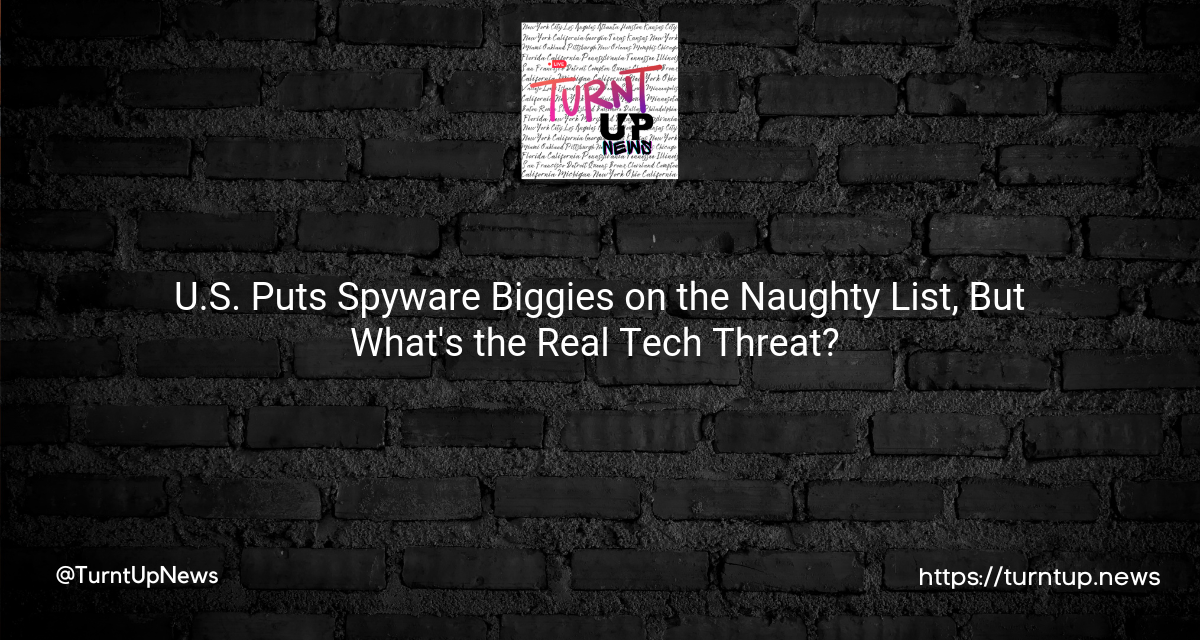🤔 U.S. Puts Spyware Biggies on the Naughty List, But What’s the Real Tech Threat? 🕵️♂️
TL;DR; 😲 U.S. gives two major spyware companies the cold shoulder by adding them to a no-trade list. Why? They’re apparently bad news for national security and worldwide privacy! 🌍🚫
It’s 2023, but it seems like the U.S. is still playing the old “you can’t sit with us” game! This time, foreign commercial spyware companies Intellexa and Cytrox are the ones left standing when the musical chairs of trade activities stop. Why? The U.S. believes these two are, let’s say, “unfriendly” to national security and foreign policy vibes. 🤷
But hold up, this isn’t some random decision. 🛑 The U.S. has been on a quest to control the misuse of commercial spyware. This recent move has been dubbed the most impactful since President Biden’s executive order earlier this year. That order? It put a leash on U.S. agencies’ spyware usage, especially when there’s a chance of other countries exploiting the tech to target Americans or mess with human rights. 👩⚖️✊
The word on the street (or more like a senior official’s desk) is that this is a “loud and clear” warning to spyware users and the surveillance market overall. And hey, if you’re thinking of investing in these companies, maybe it’s time for a double-take. Because if your money’s supporting sketchy biz practices, you could be jeopardizing global tech security. 😅💸
The companies facing the wrath? They’re from Greece, Hungary, Ireland, and North Macedonia. The big crime? They’ve been dabbling in cyber tools to breach info systems, which means peace out to privacy and security for peeps and organizations worldwide. 😡🌐
And remember the whole NSO Group drama last year? The Israeli spyware giant got a one-way ticket to the blacklist when their phone-hacking tool was found in foreign governments’ toy boxes. That tool had been used to keep tabs on officials, academics, journalists, and more. Spicy stuff, right? 🌶️📱
Now, the tea on Cytrox and Intellexa’s relationship is as clear as a foggy day in London. One’s a newbie from 2017, and the other seems to be on a mission to challenge NSO Group’s throne. And with ties to a former Israeli intelligence officer and some seriously questionable software uses, they’re making waves! 🌊
But what’s wild? Both their spywares, Predator and Pegasus, targeted the same Egyptian politician’s phone. It’s like they’re in a spyware love triangle! 💔 And as long as governments can grab this hacking tech, expect this pattern to continue. 🔄
White House insiders hinted that other countries have played dirty, using spyware against U.S. peeps. Post Biden’s order, 50 U.S. government workers’ devices seemed to have been hacked. Uh-oh! 😵
After all is said, one thing is clear: the U.S. and its buddies are trying to tackle commercial spyware abuses. But here’s the million-dollar question: In a world ruled by tech, how can we ever feel truly safe from unseen cyber threats? 🌐💻
So, reader, it’s over to you: Is it time for us to rethink our relationship with technology? Or are we just being paranoid in a world of ever-evolving cyber-espionage? 🤔👀 Let’s chat!





